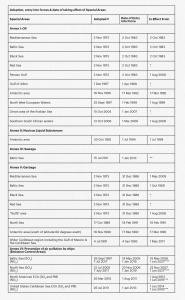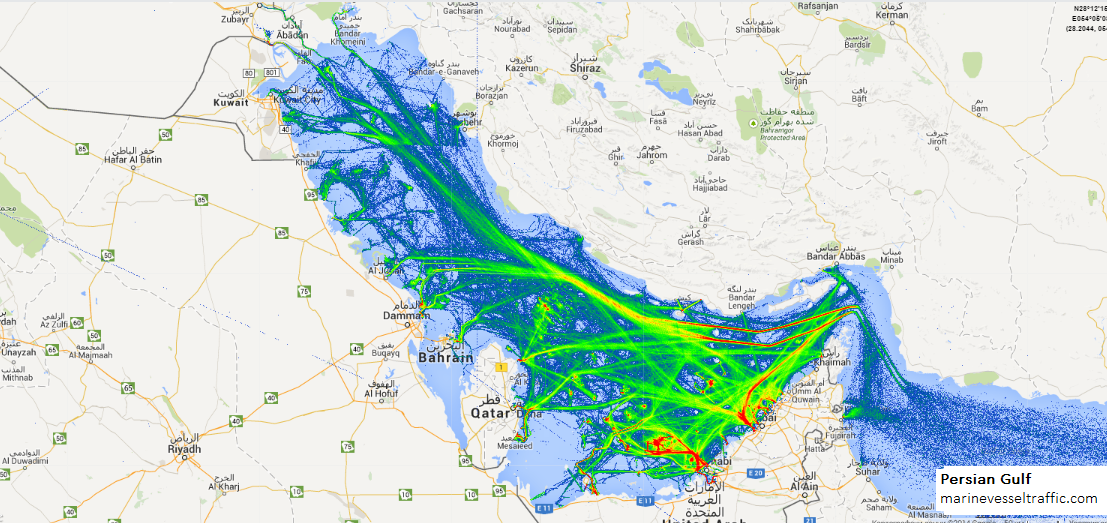The Persian Gulf countries contain a significant percentage of the world’s oil reserves and production capacity. Persian Gulf is the most strategic waterways in the world due to its importance in global oil transportation.
Almost Proven oil reserves of 728 billion barrels, representing 55 percent of the world’s oil reserves, and Oil production capacity of 25.4 million barrels per day (33 percent of the world total) at the end of 2006.
The Persian Gulf is a 600 – mile body of water.
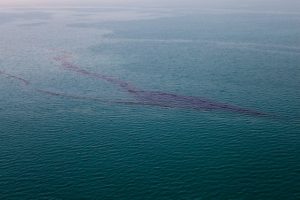
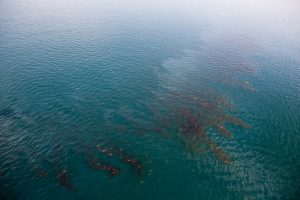
Oil pollution from ships and oil rigs in Persian Gulf
Due to the war and high rate of water evaporation, extended drilling and oil extraction, water pollution has increased alarmingly. The Persian Gulf is now one of the sensitive marine ecosystems.
The Persian Gulf has coral colonies and plant spices that need clear protection because of its crucial role in the earth’s life-supporting phenomena. The effects of industrial pollution and oil spills on the marine environment are forcing us to focus on the problem and the need for coastal conservation.
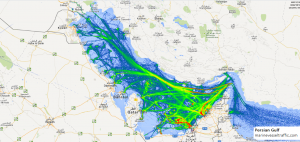
Oil tankers transport some 2,900 million tonnes of crude oil and oil products every year around the world by sea and approximately 33 percent of the world’s oil is transferred from Persian Gulf. Most of the time, oil is transported quietly and safely. Measures introduced by IMO have helped ensure that the majority of oil tankers are safely built and operated and are constructed to reduce the amount of oil spilled in the event of an accident. Operational pollution, such as from routine tank cleaning operations, has also been cut. The operational and construction regulations introduced by MARPOL, which entered into force in 1983, have been a success, with statistics from reputable industry and independent bodies showing that these regulations, along with other safety-related regulations such as the introduction of mandatory traffic separation schemes and international standards for seafarer training, have been instrumental in the continuous decline of accidental oil pollution that has taken place over the last 30 years.
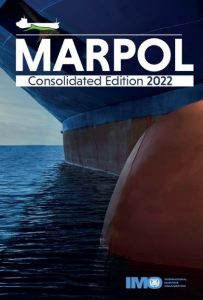
The MARPOL convention in 1983, introduced a number of radically new concepts, such as a requirement for new oil tankers to be fitted with segregated ballast tanks, so as to obviate the need to carry ballast water in cargo tanks. This was superseded by the requirement for oil tankers delivered from 1996 onwards to be fitted with a double hull. The protection of the marine environment was thus greatly enhanced.
As far as operational oil pollution is concerned, the many innovations introduced by MARPOL on allowable discharges of bilge water through the oily water separator (with the well-known 15ppm standard), or oily waters from the cargo tanks, through the oil discharge and monitoring system, have contributed greatly to a noticeable decrease in the pollution of the world’s seas, though it is fair to recognise that a greater effort to impose compliance must be carried out.
Special Areas under MARPOL Annexes
In Annex I Prevention of pollution by oil, Annex II Control of pollution by noxious liquid substances, Annex IV Prevention of pollution by sewage from ships and Annex V Prevention of pollution by garbage from ships, MARPOL defines certain sea areas as “special areas” in which, for technical reasons relating to their oceanographical and ecological condition and to their sea traffic, the adoption of special mandatory methods for the prevention of sea pollution is required. Under the Convention, these special areas are provided with a higher level of protection than other areas of the sea.
Annex VI Regulations for the Prevention of Air Pollution from Ships establishes certain sulphur oxide (SOx) Emission Control Areas with more stringent controls on sulphur emissions and nitrogen oxides (NOx) Emission Control Areas for Tier III NOx emission standards.
Special areas under MARPOL are as follows:
